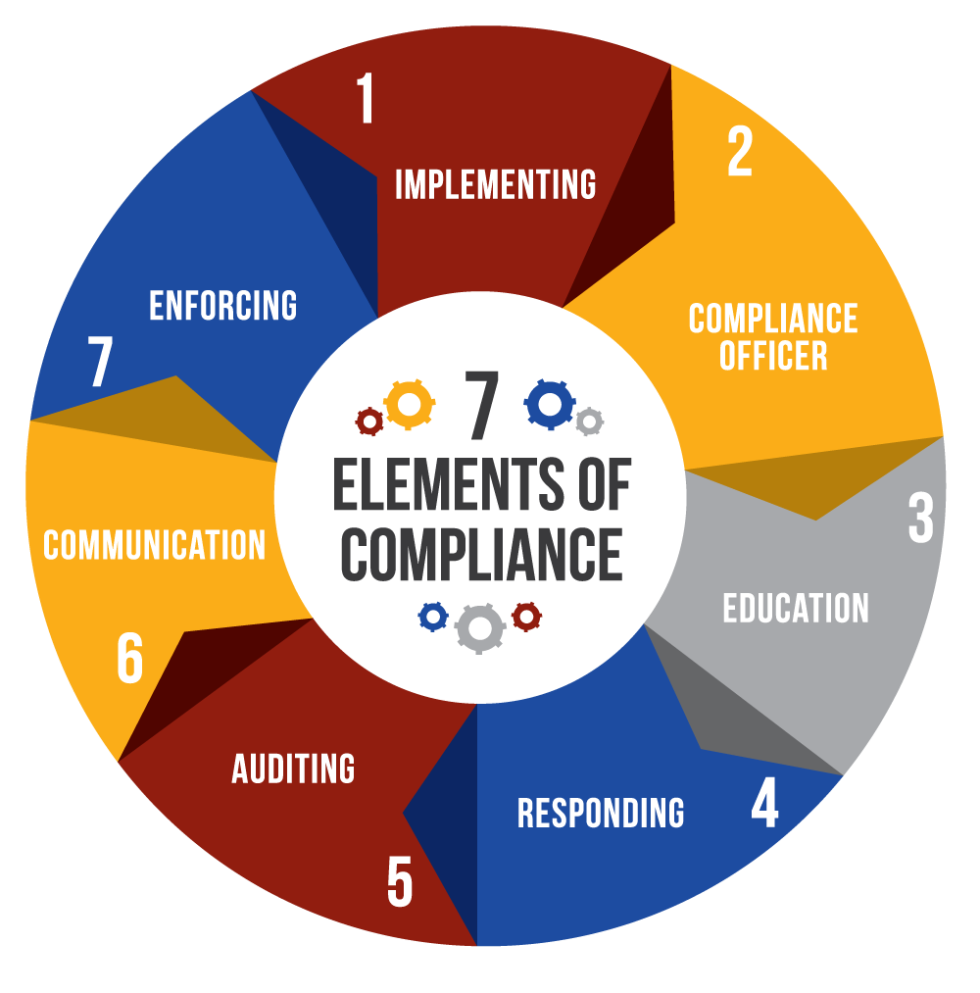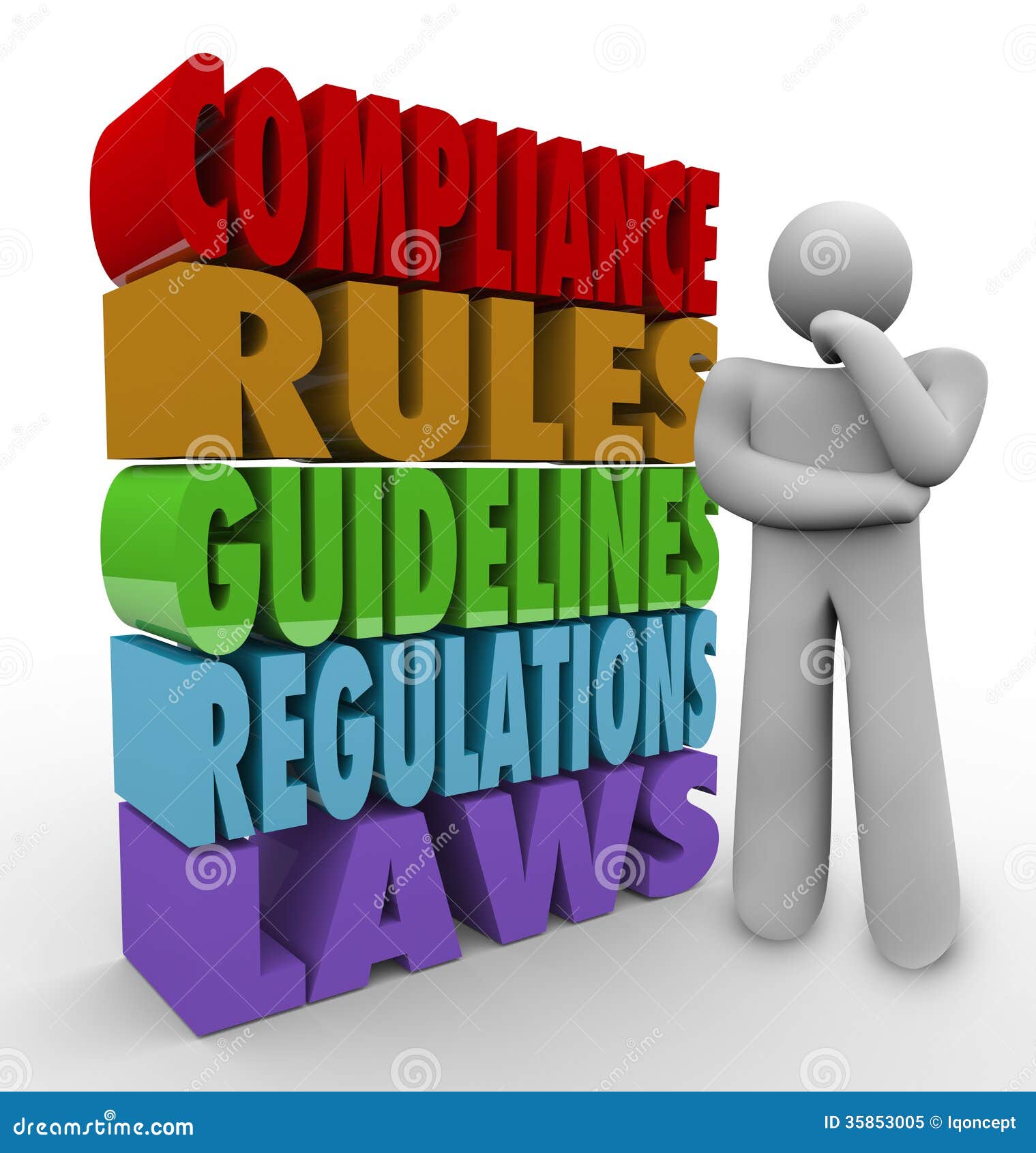Essential 7 Legal Standards: Navigating the Crucial Compliance Maze for Business Success
Introduction
With great pleasure, we will explore the intriguing topic related to Essential 7 Legal Standards: Navigating the Crucial Compliance Maze for Business Success. Let’s weave interesting information and offer fresh perspectives to the readers.
Essential 7 Legal Standards: Navigating the Crucial Compliance Maze for Business Success

Maintaining legal compliance is not merely a box-ticking exercise; it’s the bedrock upon which successful and sustainable businesses are built. Ignoring legal standards can lead to crippling fines, reputational damage, and even criminal prosecution. This article explores seven essential legal standards that businesses, regardless of size or industry, must understand and adhere to. Failure to do so can be devastating, while proactive compliance can unlock significant opportunities for growth and prosperity.
1. Contract Law: Contracts form the lifeblood of most businesses. From supplier agreements to employment contracts and sales agreements, understanding contract law is paramount. A legally sound contract clearly defines the obligations and responsibilities of all parties involved, minimizing the risk of disputes. Key elements of a valid contract include offer, acceptance, consideration, capacity (legal ability to enter a contract), and legality (the subject matter must be legal). Businesses should ensure that their contracts are reviewed by legal counsel to avoid ambiguity and potential breaches. Understanding concepts like breach of contract, remedies for breach (e.g., damages, specific performance), and force majeure clauses (events beyond control that excuse performance) is crucial. Neglecting these aspects can lead to costly litigation and damage business relationships.
2. Employment Law: This area encompasses a wide range of regulations designed to protect employees’ rights. Key areas include:
- Minimum Wage and Overtime: Businesses must comply with federal and state laws regarding minimum wage and overtime pay. Misclassifying employees (e.g., as independent contractors to avoid paying benefits) can result in significant penalties.
- Discrimination and Harassment: Federal and state laws prohibit discrimination based on race, religion, sex, national origin, age, and disability. Creating a harassment-free workplace is not just ethically sound; it’s legally mandated. Businesses must establish clear anti-discrimination and anti-harassment policies, provide training to employees, and promptly investigate and address any complaints.
- Workplace Safety: Occupational Safety and Health Administration (OSHA) regulations dictate minimum safety standards to protect employees from workplace hazards. Businesses must provide a safe working environment, implement safety protocols, and maintain accurate records of workplace accidents and injuries. Failure to comply can lead to substantial fines and even criminal charges.
- Family and Medical Leave: The Family and Medical Leave Act (FMLA) allows eligible employees to take unpaid, job-protected leave for certain family and medical reasons. Businesses must understand and comply with FMLA requirements.
3. Intellectual Property (IP) Law: Protecting a company’s valuable intellectual property is crucial for its success. This includes:
- Trademarks: Trademarks protect brand names, logos, and other identifying marks. Registering trademarks provides legal protection against infringement.
- Copyrights: Copyrights protect original works of authorship, including written works, software, music, and artwork. Copyright infringement can result in significant legal repercussions.
- Patents: Patents protect inventions and processes. Obtaining a patent grants the inventor exclusive rights to use, sell, and manufacture the invention for a specific period.
- Trade Secrets: Trade secrets are confidential information that provides a business with a competitive edge. Protecting trade secrets requires implementing robust security measures to prevent unauthorized disclosure.

4. Consumer Protection Laws: These laws are designed to protect consumers from unfair or deceptive business practices. Key areas include:
- Truth in Advertising: Businesses must ensure that their advertising claims are truthful and not misleading. False advertising can lead to significant fines and legal action.
- Product Liability: Businesses are liable for injuries caused by defective products. Product liability claims can be costly, and businesses should implement robust quality control measures to minimize the risk.
- Data Privacy: With the increasing reliance on data, businesses must comply with data privacy laws, such as the California Consumer Privacy Act (CCPA) and the General Data Protection Regulation (GDPR) in Europe. These laws dictate how businesses can collect, use, and protect consumer data.
5. Environmental Law: Environmental regulations vary significantly depending on the industry and location. Businesses must comply with federal, state, and local environmental laws, which often cover:
- Waste Disposal: Proper disposal of hazardous waste is crucial to avoid environmental damage and penalties.
- Pollution Control: Businesses must comply with air and water pollution control regulations.
- Resource Conservation: Many regulations focus on conserving natural resources and promoting sustainable practices.
6. Antitrust Law: Antitrust laws are designed to prevent monopolies and promote competition. Businesses must avoid engaging in anti-competitive practices, such as price-fixing, bid-rigging, and market allocation. Violations can result in substantial fines and criminal penalties.
7. Tax Law: Understanding and complying with tax laws is essential for every business. This includes:
- Federal Income Tax: Businesses must file federal income tax returns and pay taxes on their profits.
- State and Local Taxes: Many states and localities also impose their own taxes on businesses.
- Sales Tax: Businesses that sell goods or services may be required to collect and remit sales tax.
- Payroll Tax: Businesses must withhold and remit payroll taxes from employee wages.
Conclusion:
Navigating the complex landscape of business legal standards requires proactive planning and ongoing vigilance. While this overview provides a foundational understanding, it’s crucial to seek expert legal advice tailored to your specific business needs and industry. Ignoring legal compliance is a significant risk, while proactive compliance fosters a culture of responsibility, builds trust with stakeholders, and ultimately contributes to long-term business success. Investing in legal counsel and compliance programs is not an expense; it’s a strategic investment in the future of your business. By understanding and adhering to these essential legal standards, businesses can mitigate risk, enhance their reputation, and unlock their full potential for growth and prosperity.

Closure
Thus, we hope this article has provided valuable insights into Essential 7 Legal Standards: Navigating the Crucial Compliance Maze for Business Success. We appreciate your attention to our article. See you in our next article!
google.com


